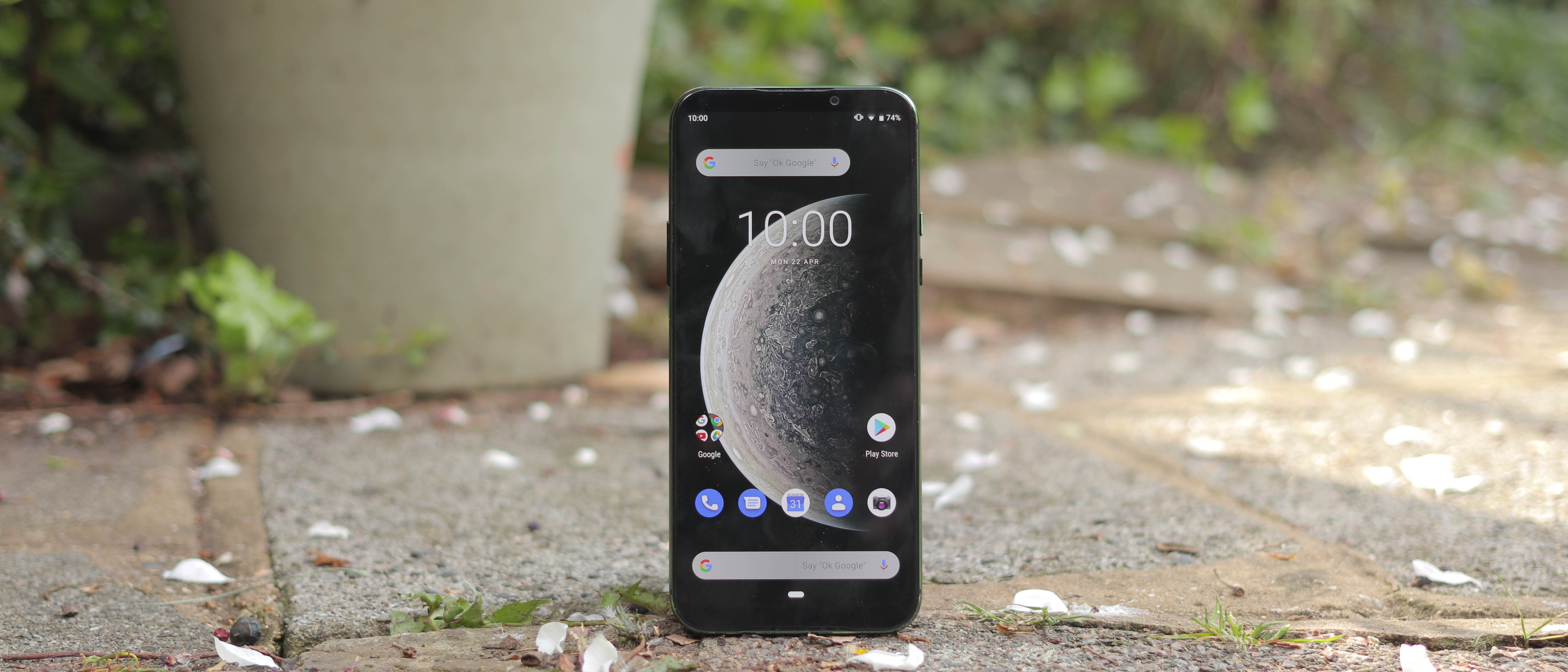TechRadar Verdict
Combining a great camera, excellent internals and improved gaming credentials over the original, the Black Shark 2 is a triple threat that betters most of its gaming phone rivals. It’s lumbered with a handful of instabilities and quirks, but even with those accounted for, the bang for buck it delivers is off the chart.
Pros
- +
Affordable Snapdragon 855 phone
- +
Plenty of storage options
- +
Punchy AMOLED screen
Cons
- -
No NFC
- -
No IP rating
- -
Touch input issues
Why you can trust TechRadar
Just a handful of months since we got our hands on the first Black Shark smartphone, Xiaomi’s gaming arm has released its successor into the wild, the bigger, more powerful, imaginatively named Black Shark 2. Black Shark is clearly hungry for market share and it’s going to fight for it.
Just after that, Xiaomi released the Black Shark 2 Pro, which is a slightly more advanced version of the 2. We haven't written a full review of it, since it's so similar, but you can find our full thoughts further in this article.
There are plenty of aggressors circling the Black Shark 2, from the excellent Asus ROG Phone right through to the good-looking but ultimately lacklustre Razer Phone 2, but the Black Sharks have the advantage when it comes to price.
The Black Shark 2 specifically costs £479 (around $620/AU$880), despite the fact that it’s powered by the top-end Qualcomm Snapdragon 855 chipset. It also improves on the spec of the first by swapping out a mono speaker and tweeter combo for dual front-firing speakers and trading its lacklustre LCD panel for some incredibly zingy AMOLED.
There’s no two ways about it - this is a much better phone than the original, and it’s probably the best value gaming phone money can buy. The question is, is it a good phone for gamers and non-gamers alike?
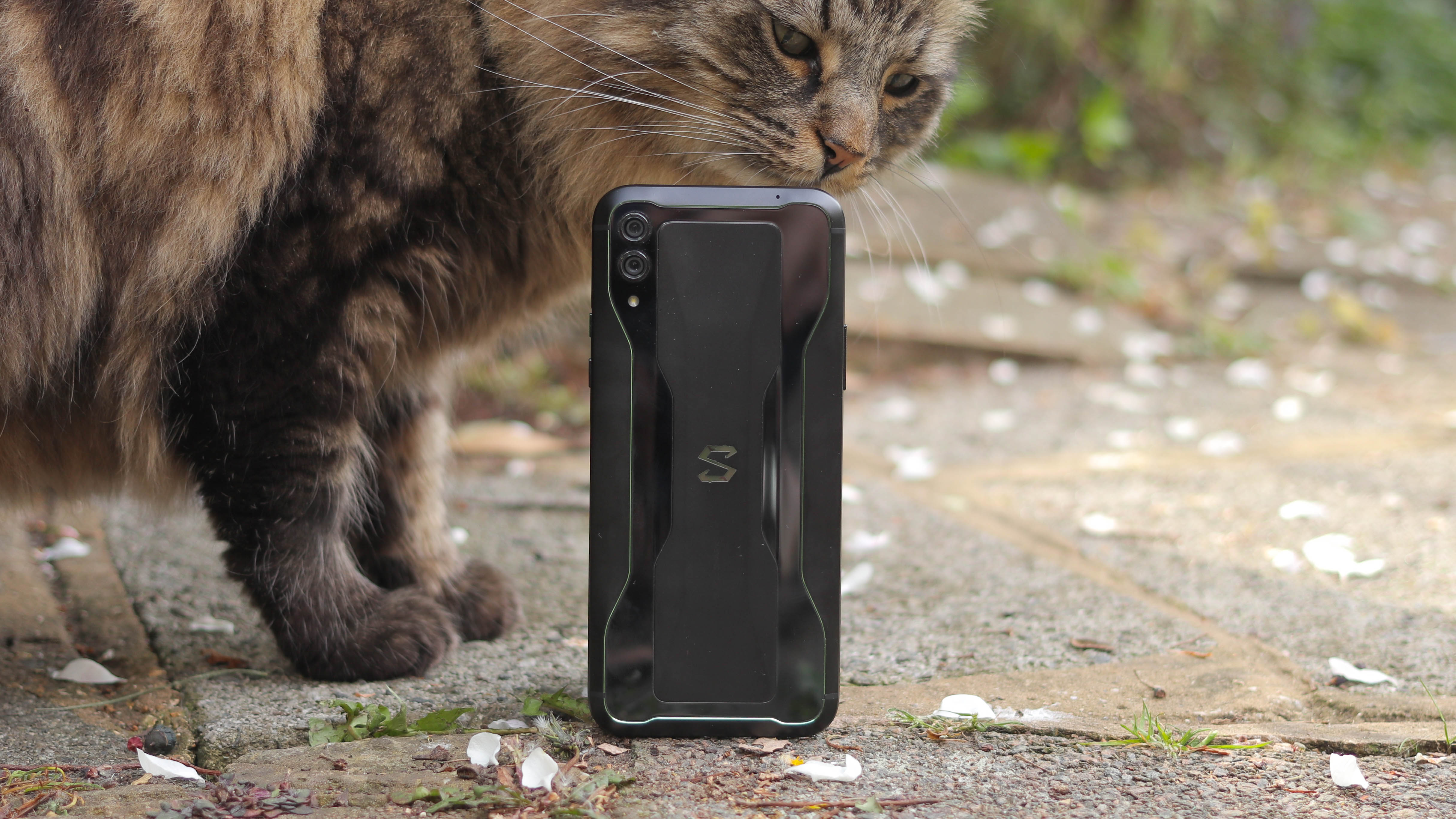
Black Shark 2 price and availability
- Out now in the UK
- Costs £479 (roughly $620/AU$880)
- No US release date yet confirmed
The Black Shark 2 is available now in the UK on Black Shark’s website.
Available in two versions, it packs either 8GB of RAM and 128GB of storage, or 12GB of RAM and 256GB of storage. The 128GB Black Shark 2 costs £479 (roughly $620/AU$880), with Australian pricing yet to be confirmed, and the 12GB/256GB model costs £529 (around $690, AU$995).
It’s also available in China and other European markets, though no US release has been confirmed.
If you want to pick up the slightly improved Black Shark 2 Pro (which we'll explore later in this article) it'll cost you £539 for the 8GB/128GB model (about $700, AU$1,010), but the 12GB/256GB device will set you back a slightly pricey £629 (roughly $815, AU$1,180).
Key features
- Big AMOLED screen
- In-screen scanner and stereo speakers
- No NFC, headphone jack or wireless charging
Once again, Black Shark has released an aggressive-looking metal phone, only this time, the illuminated logo on the back doesn’t just glow green, it delivers over 16 million colors and is part of a trinity of glowing elements - with the other two on the left and right side of the device.
The screen has seen a bump up in size, from 5.99 inches to 6.39 inches, and while it’s still a Full HD+ resolution, this time around Black Shark has opted for AMOLED screen tech, which when done well is the pinnacle of smartphone screen tech thanks to its extra punch and pop.
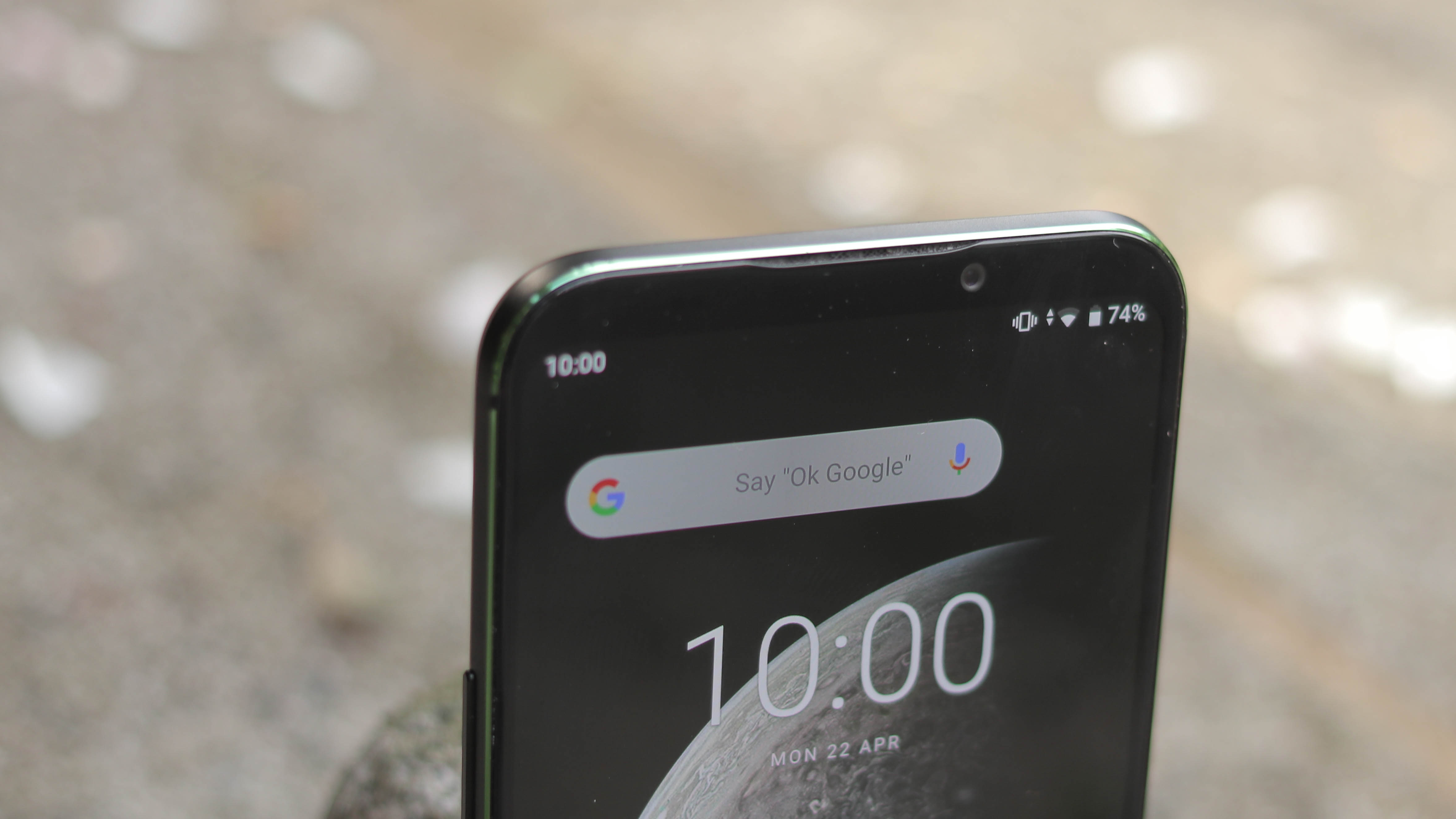
In addition, there’s an in-screen fingerprint scanner, stereo speakers and a dual-lens camera around the back, with the primary sensor clocking in at 48MP. There’s no headphone jack or NFC, both of which are noteworthy omissions, and there’s also no wireless charging.
Still, the Snapdragon 855 chipset inside the Black Shark 2, paired with a minimum of 8GB of RAM and up to 12GB, will rip right through even the toughest Android games out now, and there’s also a 4,000mAh battery inside.
Design
- Heavy but slim
- High-end but aggressive aesthetic
- Light-up elements
This time around, things have gotten a little bigger and heavier, with the Black Shark 2 weighing 15g more and packing a taller body than the original. Despite being bigger, it’s slightly slimmer, at 8.8mm, so isn’t particularly chunky, and the whole phone just looks that bit more refined too.
On the front of the Black Shark 2 there's the Full HD+ display with a 19.5:9 aspect ratio, complete with an in-screen fingerprint scanner as found on the likes of the OnePlus 6T and Huawei P30 Pro.
With on-screen buttons, there isn’t much extra faff on the fascia, though above and below the display there's a pair of welcome front-firing stereo speakers, while at the top of the phone’s front there's a 20MP selfie camera.
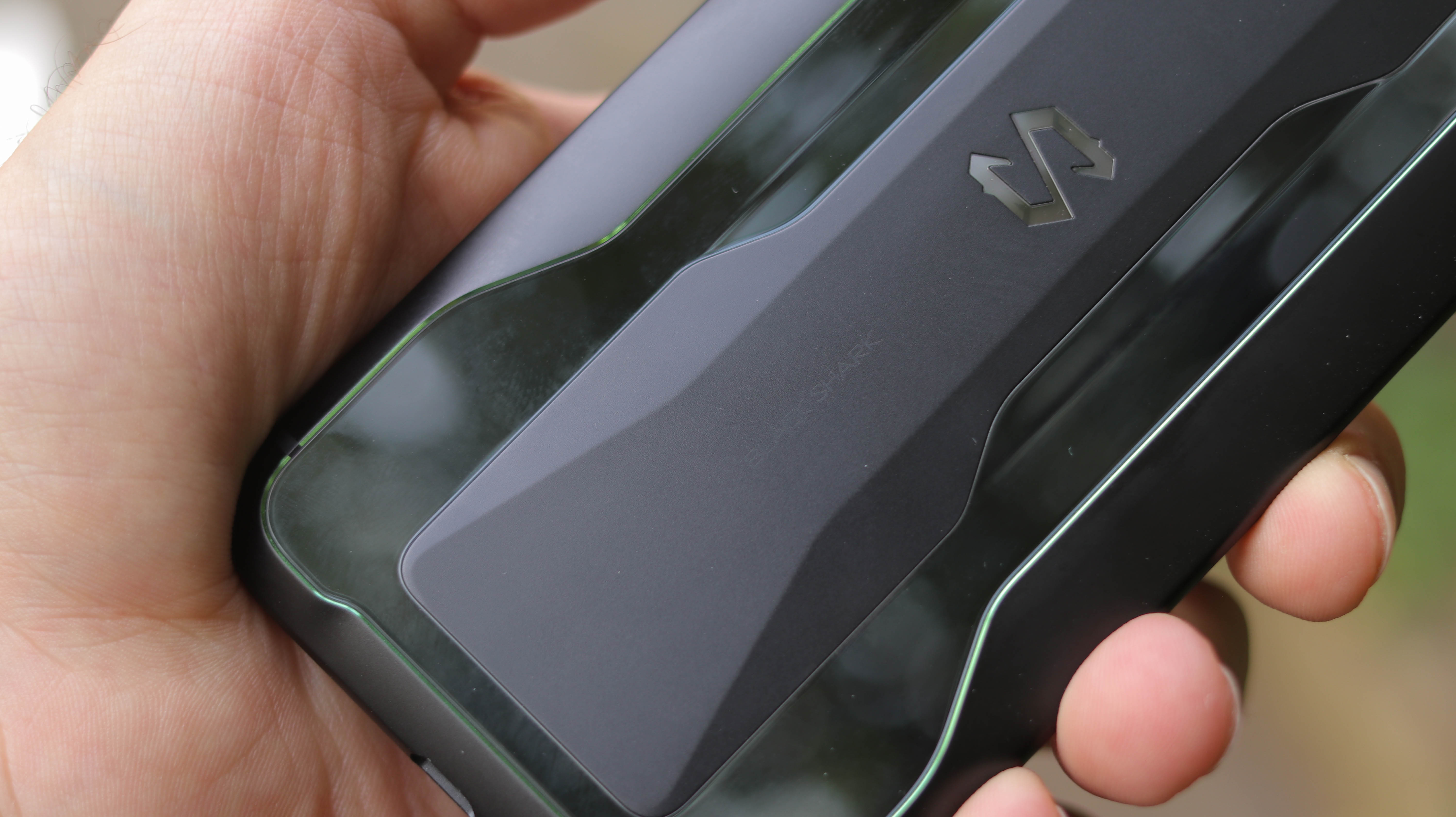
The overall look is reminiscent of the first Black Shark, with a Batmobile-style armored aesthetic that kind of looks like a matte black Lexus RX if you squint. There’s heavy beveling and a green trimming around the front of the Black Shark 2, grabbing light and glinting nicely.
The back of the phone is a tale of twos - two beady eyes form the dual-camera and two materials are showcased beautifully - namely glass and matte metal. In the center of it all lies a light-up Black Shark logo, which illuminates to the visual tune of a full spectrum of RGB colors this time around.
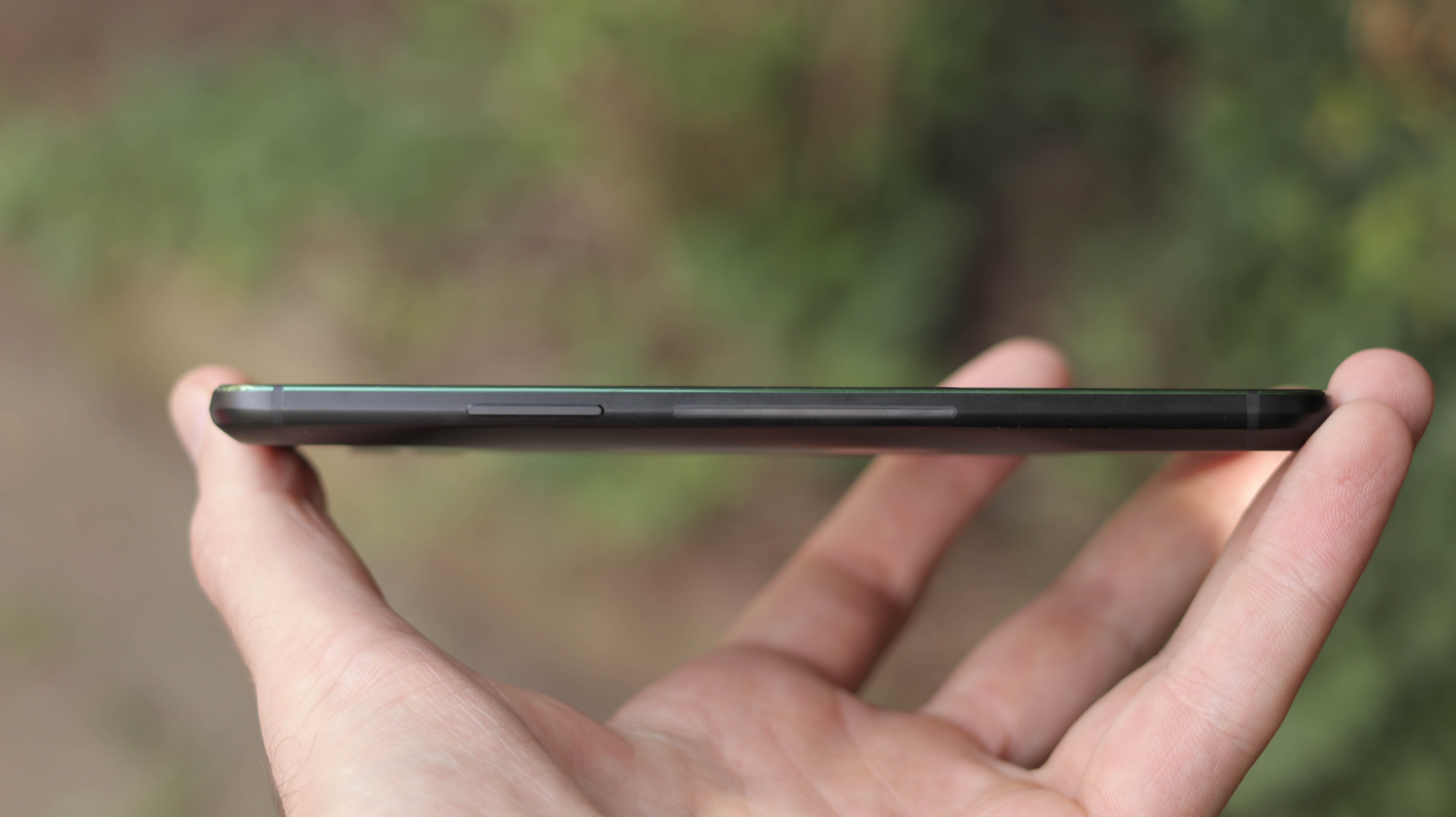
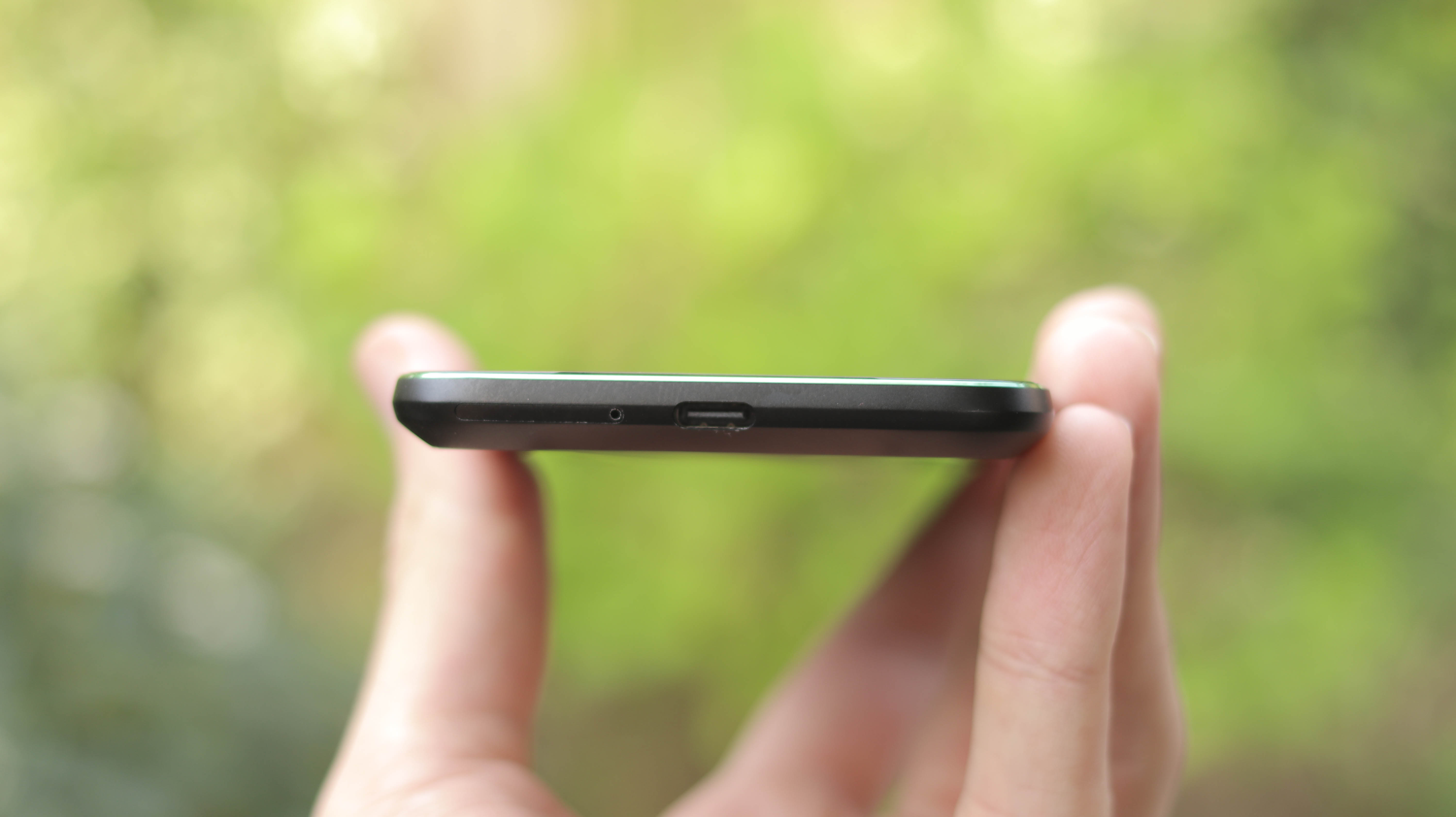
To the left there's a volume rocker, and to the right, a power button and toggle to transport users into Shark Space, the phone’s gaming center. At the base there's a USB-C port, and on either side are light up RGB strips to compound the ‘grrrr’ factor.
There’s no headphone port on the phone, but a USB-C to 3.5mm adaptor is included in the box. So too is a semi-opaque black plastic bumper, which helps save the back and sides from scuffs and scratches, and there’s a pre-fitted screen protector neatly keeping the front safe too.
Ultimately, the Black Shark 2 still won’t be for everyone from a design point of view given its aggressive aesthetic and lack of water resistance, but it’s improved over its predecessor, adding refinement, screen size and more RGB into the mix.
Screen
The original Black Shark packed a fair, unexceptional LCD display. This time around though, it's AMOLED all the way, and with an added 0.4-inches of screen size, totaling 6.39-inches, it's more immersive too.
While the Black Shark 2 doesn't pack the screen refresh rates of the competition - 120Hz on the Razer Phone series and 90Hz on the Asus ROG Phone - it does claim to be the most responsive, with a 240Hz touch report rate, and a 43.5ms response time.
In reality, the responsiveness was great, but not noticeably better than any other top-tier flagship, for us casual gamers at least. Hardcore PUBGers, you may disagree.
As for the resolution, at 1080 x 2340, it delivers the same pixel density as the original (with marginally more pixels but a bigger screen), while upping the screen aspect ratio from 18:9 to 19.5:9. While not the sharpest gaming phone around, therefore, it still looks great, with similar clarity to the iPhone XS and Huawei P30 Pro.
As for color accuracy, out of the box it shoots between the eyes with incredibly zingy vividness. This hyper-saturation might suit some and works great in games, but we jumped into the settings and dialed back the oomph shortly after getting the phone.
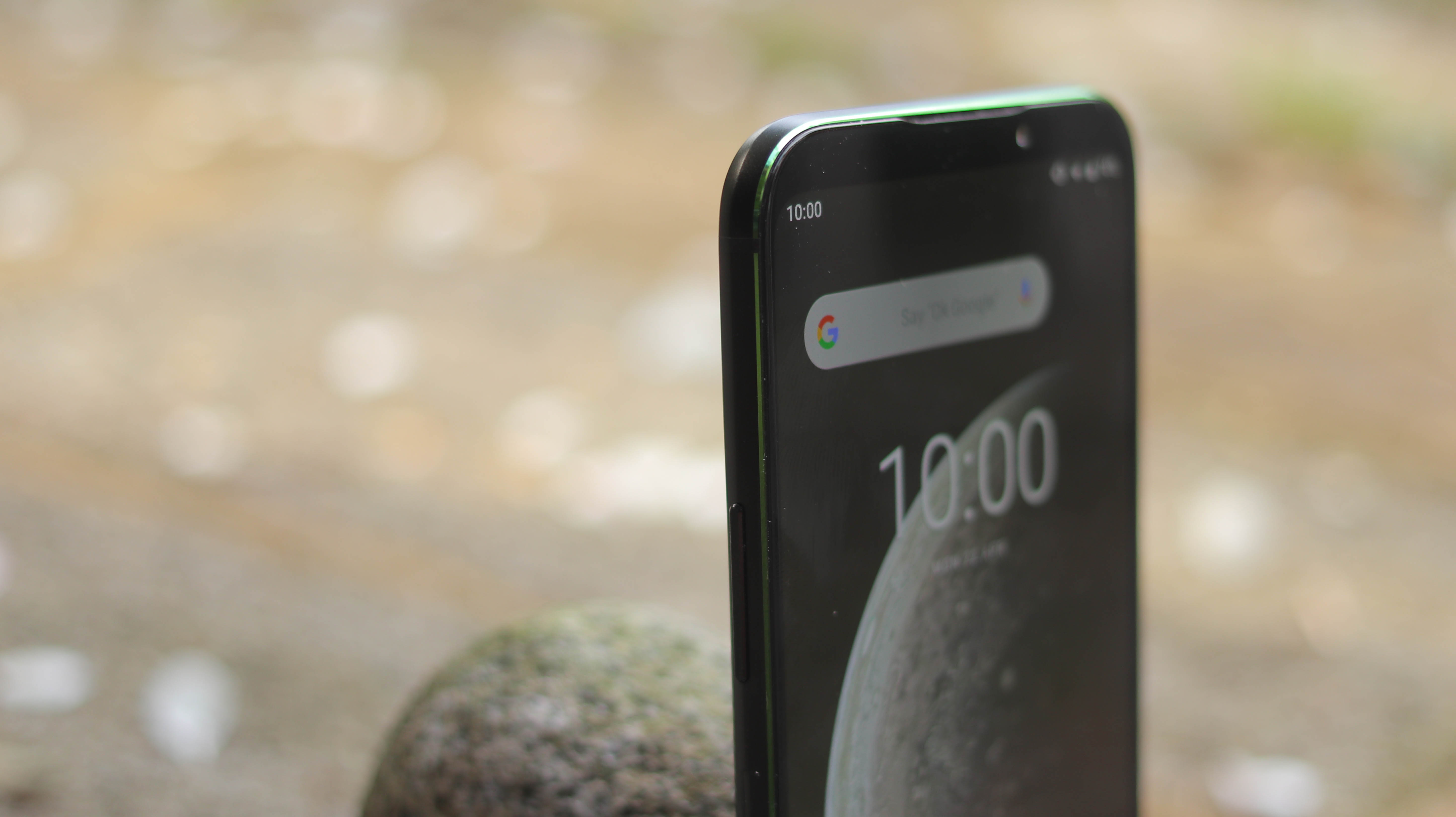
Screen options include the default Cinema mode, a more muted Natural mode and finally, an Eye Comfort mode, which dials the blue light back and ramps up the warmth, making everything look reassuringly sun-kissed.
In addition, the Black Shark 2 features a Video HDR mode which upscales standard dynamic range video content, as well as a Super Cinema mode. This boosts frame rates and optimizes video playback quality.
We noticed it definitely bumped up saturation nicely when watching videos and playing games, so kept it turned on after flipping the default screen setting to Natural.
It isn’t perfect. The ambient light sensor has a habit of lagging, so in bright environments the screen would be too dark for around 20 seconds, which left us ultimately reverting to manual brightness.
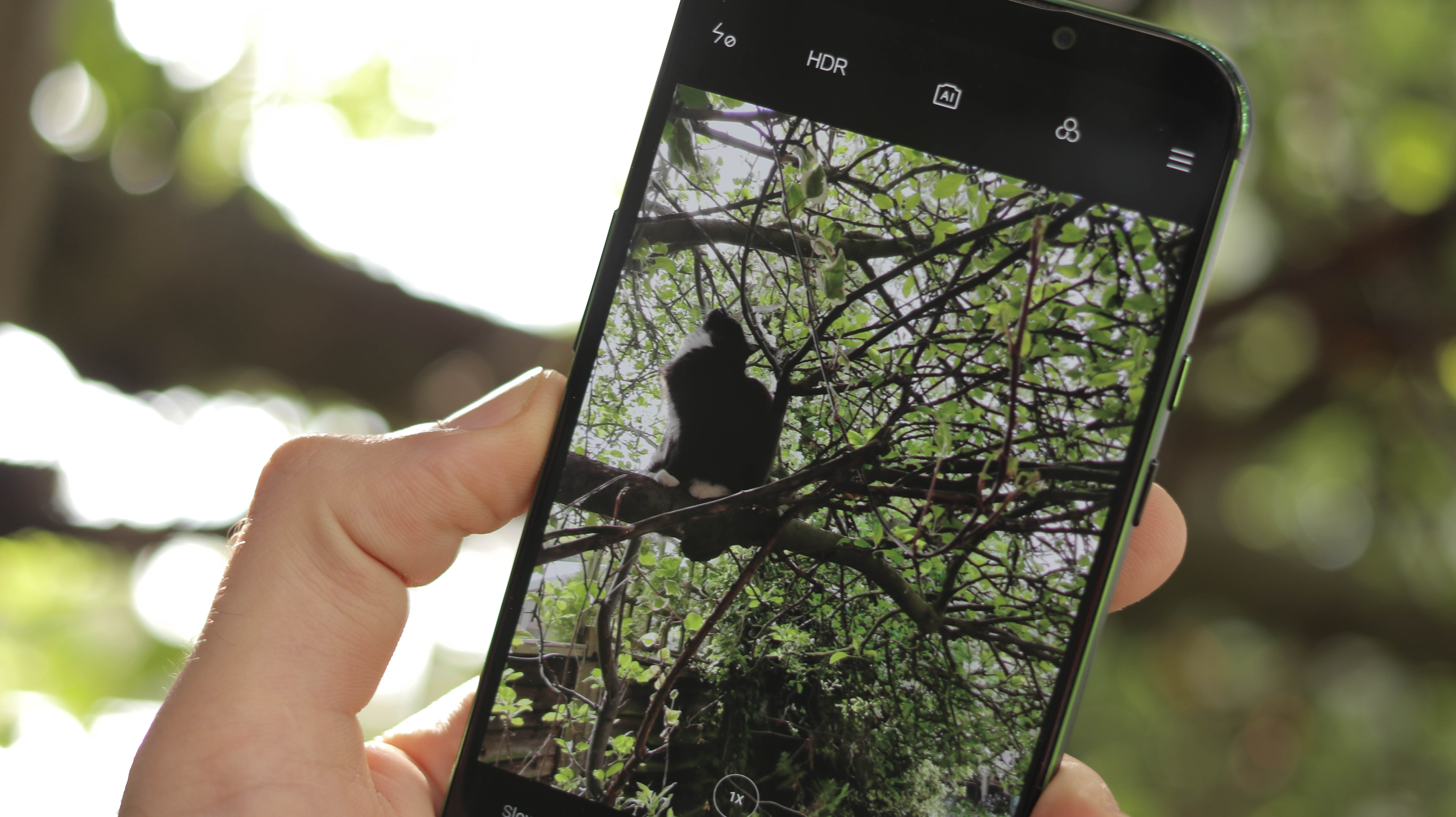
The screen’s responsiveness was occasionally totally off too, with presses not registering at all. A simple double tap of the power button to turn the screen off and on fixed this the three times it happened in our week with the phone.
Compounding this, when swiping across the screen, our unit occasionally erroneously broke contact, so the swipe keyboard often broke our trail of typing.
All things accounted for, and even with the responsiveness issues we faced, the screen is one area the Black Shark 2 is much better than the original. The extra size is very welcome, and that customizable OLED pops as much as you'll want it to, though we would have taken no fancy vibrating or a slower response time in favor of more accurate touch sensitivity.
Basil Kronfli is the Head of content at Make Honey and freelance technology journalist. He is an experienced writer and producer and is skilled in video production, and runs the technology YouTube channel TechEdit.
